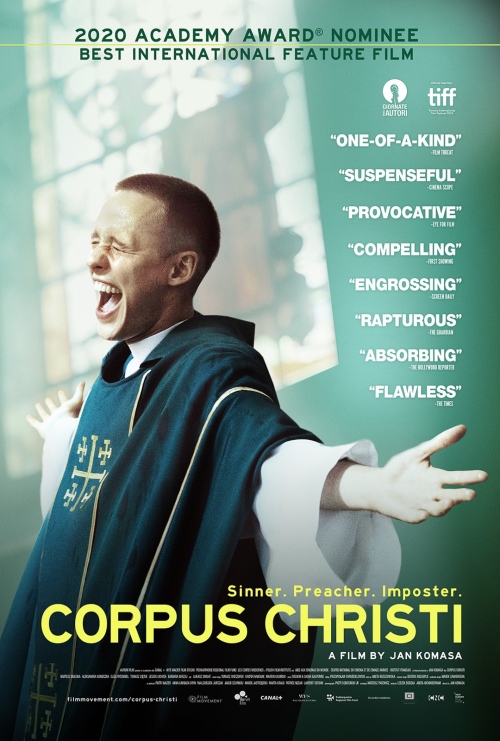Les Misérables won the Jury Prize at Cannes in 2019 and was France’s submission for the Academy Award for Best International Feature Film this past year, earning one of the five nominations but losing out to eventual Best Picture winner Parasite. The first full-length film directed by Ladj Ly, who was born in Mali and raised in the Montfermeil commune in the eastern Paris suburbs, Les Misérables takes its name from the Victor Hugo novel, but tells a very timely story of police brutality and racial strife that seems like it was made specifically for the current moment both in France and in the United States.
Based loosely on an actual incident of police violence Ly witnessed in that same commune in 2008, Les Misérables takes place over the course of about 36 hours, following three police officers – one, Stéphane, new to the job and to the city – who patrol a specific neighborhood of apartments and shops that are largely populated by immigrants from former French colonies in northern Africa. Both veteran cops, Chris (who is white) and Gwada (who is black and speaks Bambara as well as French), take the approach that they must use force to make the residents ‘respect’ them, with Chris especially willing to profile people, even kids, and rough them up while frisking them without cause, while Gwada often stands by. They’re entwined in the subculture of the neighborhood as well, with rival forces that include the “mayor,” who works with Chris in particular to maintain his local authority, and the Muslim Brotherhood, led by former drug dealer turned imam Salah. When a touring circus of Roma performers threaten the immigrants unless a lion cub stolen from them by one of the children in the neighborhood is returned, the cops’ overbearing tactics leave one child seriously injured and spark a cascade of violence.
Les Misérables is a serious film that balances its multiple themes of police brutality, racism, and xenophobia with a plot that often unfurls like that of an action film. Most of the adult characters have some complexity to them, other than Chris, who is your garden-variety racist white cop like you might find in a less nuanced film. Stéphane has a real arc to his story as he’s confronted with Chris’ increasingly violent and counterproductive tactics and Gwada’s tacit approval despite the latter’s racial and ethnic ties to many of the residents of these apartment buildings, and thus has to choose when to speak or act, finding his voice more as the story progresses and puts him into increasingly more difficult situations. The main child character is Issa, who we’re told is always causing trouble, and who ends up a central character in the trouble that follows – in no small part because the police already know him, and Chris and Gwada seem more than ready to treat him like a dangerous adult rather than a small child who (as we see in an early scene) has no guidance at home.
While this film was made in 2019 and hit amazon prime back in April, watching it right now made it seem like it was written as an argument for community policing. The racism and xenophobia depicted here are nothing new and the script isn’t making any novel points or arguments about them, but the way that Chris and Gwada maintain ‘control’ of this area is extremely damning of what I would think of as the American model of policing. It’s punctuated by their link to this local fixer/boss who calls himself the Mayor, and how they react when they find out they’ve been filmed during one such act of violence against a suspect, and in turn how Stéphane, who isn’t from this geographical area and hasn’t worked as this sort of cop before, reacts when seeing it from an outsider’s view. While the script at least creates some ambiguities around some of the adults in the community, this is a protest against the power given to and wielded by police against underprivileged and mostly powerless communities that lack avenues to fight back through political or legal channels, leaving them little recourse but to respond in kind.
—
I went to put Les Misérables on my rankings of 2019 films, only to discover that I didn’t post them back in March/April like I’d planned to do. So while I still have a few stragglers from last year I’d like to see (Monos, Invisible Life), here’s everything I saw from 2019, with links to my writeups, from my favorite to my least favorite:
2. Knives Out
3. Little Women
4. Uncut Gems
5. Pain and Glory
6. Once Upon a Time in Hollywood
7. The Irishman
8. Corpus Christi
9. The Farewell
10. Ford v. Ferrari
11. Les Misérables
13. Hustlers
14. American Factory
15. Wild Rose
16. The Whistlers
17. The Two Popes
18. The Souvenir
19. 1917
20. Toy Story 4
21. Marriage Story
22. High Flying Bird
23. Non-Fiction
24. FYRE
25. Honeyland
26. Bombshell
27. Climax
28. Jojo Rabbit
29. Atlantique
30. Joker
31. Booksmart
32. Judy
33. High Life
34. Portrait of a Lady on Fire
35. The Great Hack
36. Frozen 2
